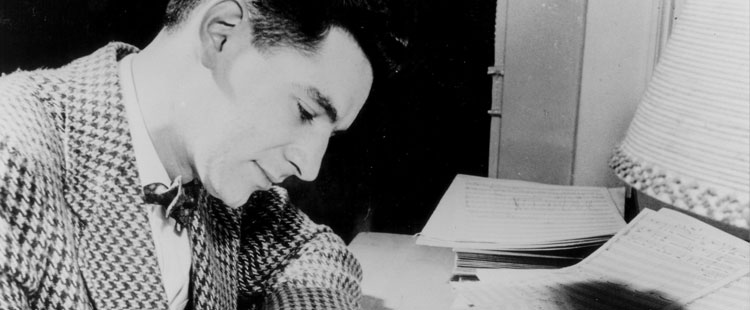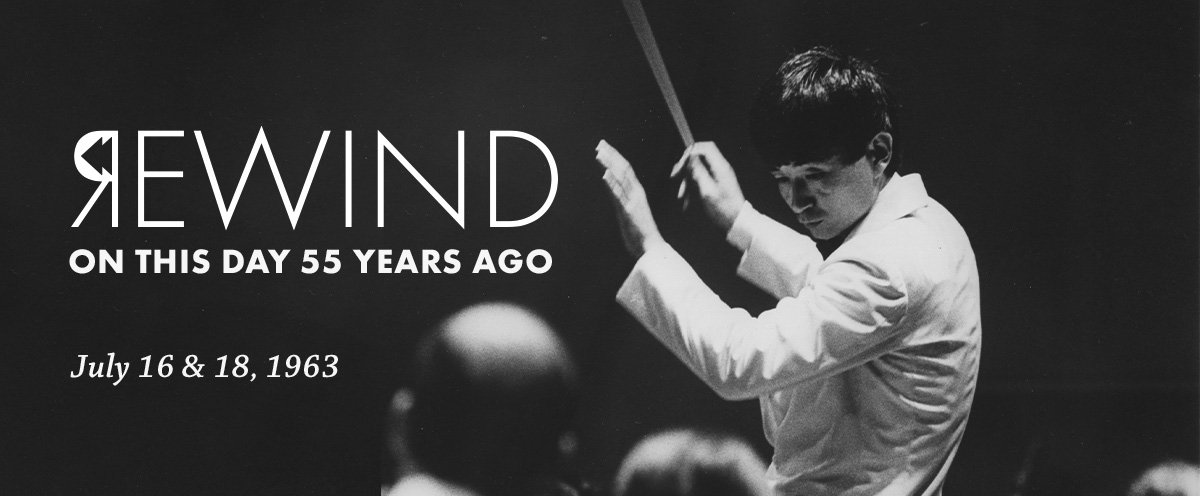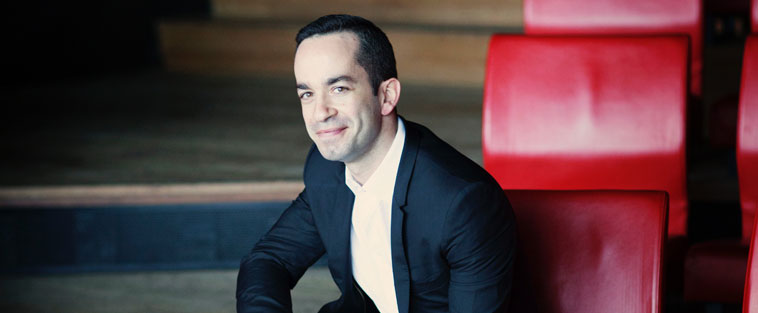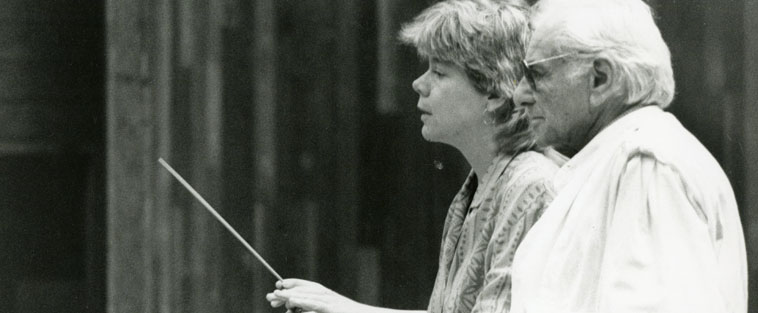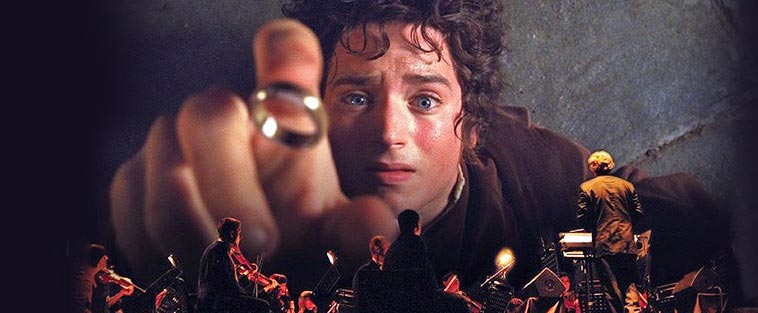Get to know pianist Jorge Federico Osorio before he rejoins the Chicago Symphony Orchestra onstage for the opening night of its annual residency on July 9, where Osorio will play Mozart with Marin Alsop.
Read MoreClassical
Turning the Keys: Pianist Garrick Ohlsson pushes the pedal on Ravinia’s summer with an old friend and a new sound
Garrick Ohlsson’s audience on July 12 will be the last of his four nights at Ravinia this summer, as well as his 40th overall between the festival’s stages, but in one way they will also be his first, anywhere. That Ravinia audience will be the first to hear him conclude a series begun over a year ago—thanks to the pandemic.
Read MoreWFMT, Ravinia Announce "New From the Ravinia Festival" Broadcast Series
Ravinia Festival is pleased to announce a new broadcast series in partnership with WFMT. The eight-program, limited-run series “New From the Ravinia Festival,” brings listeners new performances recorded at Ravinia — without an audience — this summer.
Read MoreHighland Park High School Marching Band Ready to Kick Some Mass
For Highland Park High School Marching Band director Josh Chodoroff and members of the marching band, their participation in Ravinia’s encore performance of Leonard Bernstein’s Mass on Saturday, July 20, has to be the very best “This one time, at band camp” story.
Read MoreJENNIFER HUDSON MAKES CSO DEBUT IN GALA, RAISING $1.1M FOR MUSIC EDUCATION
The annual Gala Benefit Evening hosted by Ravinia’s Women’s Board to support the festival and its Reach Teach Play education programs grossed more than $1.1 million, making it one of the most successful in the 53-year history of the event. Chicago’s own Oscar- and Grammy-winning Jennifer Hudson made her Chicago Symphony Orchestra debut, headlining the only concert fundraiser Ravinia puts on for itself. George Hanson, who had served as an assistant to Leonard Bernstein, conducted the CSO for the July 14 concert. Nearly 800 guests attended the black-tie-optional gala, which proceeded with cocktails on Ravinia’s famous Lawn after the concert.
Read MoreAll the World’s His Stage: Regardless of Genre, Bernstein Put On a Show
America’s most important music figure was many things to many people: conductor, composer, pianist, educator, author, television personality, activist, international bon vivant. But if you asked Leonard Bernstein how he self-identified, he thought of himself as a composer.
Read MoreThe Existential Question: Marin Alsop is here for more seriously popular Bernstein
The floodtide of events with which Ravinia celebrated Bernstein’s 100th birthday in 2018 was only the beginning. The grand celebration continues for a second festival summer with nearly a dozen Bernstein-themed programs curated by the American conductor Marin Alsop, Bernstein’s final (and only female) protégé and one of the world’s most prominent champions of his music.
Read MoreRavinia Welcomes Home Asst. Conductor George Stelluto
George Stelluto, music director of the Peoria Symphony Orchestra, makes his summer home at Ravinia, where he serves as assistant conductor, understudying the repertoire to be performed by the Chicago Symphony Orchestra and ready to leap to the podium at a moment’s notice should an emergency arise.
Read MoreWays to a Means: Composers needed clever commitments to keep themselves in coin
Since Elizabeth’s time, composers have found diverse ways to finance their careers, and a consideration of some of the composers whose music will be performed at Ravinia this summer shows how cleverly their solutions evolved over the years.
Read MoreRUMBLINGS OF A NEW WEST SIDE STORY
More than a century after his birth, Leonard Bernstein remains a pop culture phenomenon. Hot off the success of A Star Is Born, Bradley Cooper will direct and star in a biopic about multi-hyphenate who many consider the most important musician in American history. At the same time, America’s most successful filmmaker is remaking the treasured 1962 Best Picture Oscar winner West Side Story. Someone with Spielberg’s track record of blockbusters is in a position to pick only the best.
Read MoreJAZZ PIANIST DAN TEPFER FINDS CODING A MUSICAL INSPIRATION
Jazz pianist and composer Dan Tepfer is releasing his album Natural Machines tomorrow, May 17, with a twist. On this album, Tepfer plays a unique digital player piano called the Disklavier, which takes the music he plays on the piano, runs it through a computer program he wrote, and plays it back over the instrument.
Read MoreTuning Up: Musicians and conservatories break the cycle of performance injuries
Melissa White and Elena Urioste got through the beginnings of their professional violin careers without thinking much about their bodies. If they had performance-related pain, they ignored it as long as they could.
Then, in 2009, they separately found yoga.
Read MoreHarmony in Motion: Peter Sellars and Grant Gershon get closer to Him through The Tears of Saint Peter

“John was looking for a texture for The Gospel According to the Other Mary,” explains Sellars, “and he was going through medieval music and Renaissance music kind of like Igor Stravinsky, looking for music where there’s a very detailed and elaborate harmonic language. John came across Lasso and became so excited. He told both Grant and me to look at Orlando de Lasso.”
Read MoreIntense, Beautiful, Devoted: Classical music has long felt the Bern(stein) to speak in political tones
There was a stunning moment in the Lyric Opera of Chicago’s “Celebrating 100 Years of Bernstein” gala this season. Kate Baldwin, on a brief hiatus from her Tony Award–nominated run in Broadway’s revival of Hello Dolly!, took the stage and delivered an ineffably moving rendition of Leonard Bernstein’s Vietnam-era protest song “So Pretty.” This affecting piece, with lyrics by Betty Comden and Adolph Green, was first heard in 1968 at the Broadway for Peace fundraiser co-hosted by Bernstein and Paul Newman. It was performed then by Barbra Streisand with the composer himself at the piano. The song tells of a land far away with golden temples and pretty people with shining hair—who we are told “must die for peace.” The text concludes with “But they’re so pretty, so pretty. / I don’t understand.”
Rewind: July 16 and 18, 1963
If anyone had a knack for defying convention with an astounding rate of success, it was Leonard Bernstein. When he became music director of the New York Philharmonic in 1958—15 years after his surprise debut with the same ensemble, then only months into his tenure as its assistant conductor—the tradition had been for those assistants to remain in the position for only one year. But then Seiji Ozawa caught his eye. The winner of the 1960 Koussevitsky Prize at Tanglewood, where Bernstein had been a close advisor for the conducting and orchestral programs since 1951, and subsequently the winner of a scholarship to study with the quintessential maestro Herbert von Karajan, Ozawa was quickly sought by Bernstein to become one of the NY Phil assistants in 1961. One of three conductors in the role, Ozawa was nonetheless a clear favorite, being chosen to lead a performance during the orchestra’s 1961 tour and retaining a close association with Bernstein, if unofficially, through the maestro’s 1965 sabbatical.
The program insert for Seiji Ozawa’s hastily arranged Ravinia and Chicago Symphony Orchestra debut
The especial attention from “America’s music teacher” of course drew the attention of other ensembles. Ozawa made debuts with the orchestras of San Francisco, Minneapolis, Detroit, and Montreal between 1962 and 1963. During the latter summer, he received a call similar to that which Bernstein received in 1943: the conductor for the Chicago Symphony Orchestra’s concerts at Ravinia has suddenly taken ill at the 11th hour, and could Ozawa come conduct his concerts. Even with a program inherited from Georges Prêtre, comprising Beethoven’s Third Leonore Overture, Grieg’s Piano Concerto, and Dvořák’s “New World” Symphony, Ozawa appointed himself well in his Ravinia and CSO debuts on July 16, with the Chicago Daily News readily recognizing the influence of “Leaping Lenny”: “While conducting, he [Ozawa] slides easily from waltz to rhumba to twist to a modified version of the Limbo … however, he remains in control of the situation. Ozawa can make an orchestra do almost anything he wants … it would be hard to name a conductor of his age more gifted, and it will be fascinating to see what becomes of him.”
Ozawa leads a rehearsal with the Chicago Symphony Orchestra during his first season as Ravinia’s Music Director, 1964
The second night, July 18, was opened up to Ozawa, which caused the Daily News to assert, “It is necessary to revise the glowing estimation that appeared in this space … because by evening’s end it was becoming hard to think of many more gifted conductors of any age. This time, Ozawa faced and passed the only worthwhile test of a conductor: he brought a new work [Takemitsu’s Requiem for Strings], rehearsed the orchestra in it thoroughly, and then secured a performance of polish and poetic imagination. Very little time should elapse before he shows up again at the head of the Chicago Symphony.” In very little time indeed—just a few days more than a month later—Ozawa was named the first music director of Ravinia, where he would bring the flair and passion for the music of his time (as well as music written specifically for his time) that he shared so similarly with his mentor, Bernstein, through the end of the decade. ■
Ode to Ludwig: Beethoven's symphonies meet at the crossroads of popularity and vitality
Three of Beethoven’s seismic symphonies are featured on the Chicago Symphony Orchestra’s Ravinia residency this summer, and Alsop heads up the pack on July 14 with the world-moving Ninth, featuring the Chicago Symphony Chorus and soloists soprano Tamara Wilson, mezzo-soprano Michelle DeYoung, tenor Paul Appleby, and bass-baritone Ryan Speedo Green. Gustavo Dudamel makes his eagerly awaited debut leading the Seventh on July 18 with an all-Beethoven program that also features his longtime, equally starry collaborator Yuja Wang performing the First Piano Concerto. Last, but not least, of Ravinia’s triptych is the Fifth, fated to be feted in the hands of Vasily Petrenko on August 4.
Aiming for the Score: Inon Barnatan approaches his canon on the ball
When pianist Inon Barnatan returns to Ravinia on July 21, he’ll be there to extend the history of an institution. The festival has been hosting a high-spirited, evening-long celebration of Tchaikovsky every season for now 40 years. The Russian composer’s tuneful, dramatic ballets and symphonies are among the world’s most beloved classical pieces, and every year since the early ’80s, Ravinia’s “Tchaikovsky Spectacular” has ended with a rousing version of the 1812 Overture, complete with live cannons. This summer, for the first time, the ever-popular event occupies a full weekend, July 21–22, with concerts featuring the Chicago Symphony Orchestra and conductor Ken-David Masur. The Violin Concerto—with Miriam Fried, the venerable, 25-year lion of Ravinia’s Steans Music Institute, as soloist—is the centerpiece for July 22, the traditional Sunday concert, and Israeli-born Barnatan is joining the CSO as soloist in the First Piano Concerto.
Keeping the Faith: Marin Alsop reveals and revels in Leonard Bernstein's everlasting power
“I thought, what I want for the Ravinia audience, if we can pull it off, is somebody who’s going to see the full picture of Bernstein, had a personal relationship with him and can conduct the stuff like crazy. I want somebody who I enjoy talking to. There’s selfishness to it, I guess. I’ve just always found her to be extraordinary,” says Kauffman, who was an artistic administrator with the New York Philharmonic when Alsop made her guest-conducting debut there in December 1999 as part of an Aaron Copland festival.
In addition to holding a succession of conducting posts, including her current roles as music director of the Baltimore Symphony Orchestra and principal conductor of the São Paulo State Symphony Orchestra in Brazil, Alsop has followed Bernstein’s beat as an articulate spokeswoman and innovative advocate for classical music. She has also been a leading champion of his music; a boxed set of her complete Bernstein recordings on the Naxos label was released earlier this year. As a testament to her multifaceted accomplishments, she is the only conductor to win a MacArthur Foundation “genius grant”—an honor she received in 2005.
One orchestra to lead them all: The CSO takes on ‘LOTR’ trilogy
What could make 10 hours of elves, dwarves, hobbits, and orcs even better? A live symphony orchestra, of course.
The Chicago Symphony Orchestra will perform the soundtrack to all three films in the Oscar-winning The Lord of the Rings trilogy on consecutive evenings August 18–20 at Ravinia, with the movies projected on screens in the Pavilion and on the lawn. The CSO had performed the individual films at Ravinia in previous years, but seeing the entire trilogy over three evenings will be a new experience in the Midwest.
Nadine Sierra: A Soprano Singing for Her Self in the Seats
Nadine Sierra first came to my attention some years ago while researching an article about singer education for Opera News. At the time, she was an apprentice in the Adler Fellowship Program at San Francisco Opera. In conversations with various educators and administrators, Sierra’s name kept popping up as an example of an aspiring singer with the rare combination of qualities to succeed in classical music. Those were prescient impressions. In the few years since, the delectable Sierra’s luminescent soprano voice has conquered the Metropolitan Opera, Paris Opera, Berlin State Opera, and that pinnacle of vocal accomplishment, Milan’s La Scala, among many others.






